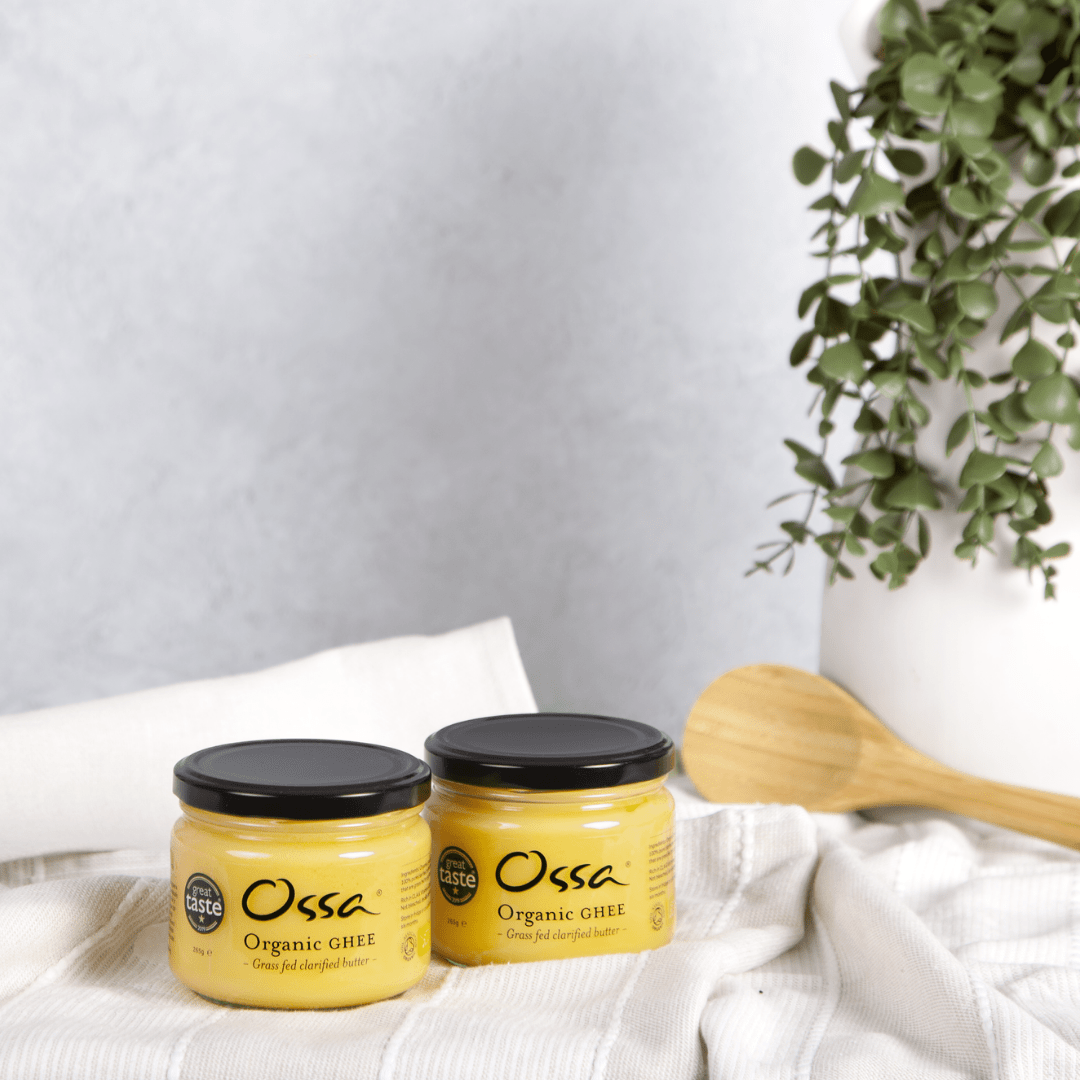When it comes to healthy fats, ghee and butter are often compared. While both come from dairy, ghee is an ancient superfood that has been used in Ayurvedic medicine for centuries. But which one is better for your health? Let’s explore the ghee vs. butter debate and understand their differences in nutrition, digestion, and cooking benefits.
What Is the Difference Between Ghee and Butter?
Though both are made from cow’s milk, the main difference between ghee and butter lies in how they are processed.
-
Butter is made by churning cream and contains milk solids, lactose, and water.
-
Ghee is made by slowly simmering butter to remove water and milk solids, leaving behind pure butterfat.
This difference impacts nutritional benefits, digestion, and culinary uses.
Ghee vs. Butter: Nutritional Comparison
|
Nutrient |
Ghee |
Butter |
|
Lactose & Casein |
Removed (ideal for lactose-intolerant individuals) |
Contains both |
|
Smoke Point |
High (250°C/482°F) – Great for high-heat cooking |
Lower (177°C/350°F) – Burns at high temperatures |
|
Healthy Fats |
Rich in omega-3s, CLA, and butyrate |
Contains some omega-3s but fewer than ghee |
|
Vitamins |
High in A, D, E, and K |
Also contains vitamins, but less concentrated |
|
Shelf Life |
Long-lasting (does not require refrigeration) |
Requires refrigeration |
Why Ghee Is Better for Digestion
One of the biggest advantages of ghee over butter is digestibility. Since ghee is free from lactose and casein, it is a great alternative for people with dairy sensitivities. It is also rich in butyrate, a short-chain fatty acid that:
-
Supports gut lining repair
-
Reduces inflammation in the digestive tract
-
Promotes healthy gut bacteria
Cooking Benefits: Why Ghee Wins
-
Higher smoke point – Ghee can be used for frying, roasting, and sautéing without burning. Butter, on the other hand, burns at lower temperatures due to its milk solids.
-
Richer, nuttier taste – Ghee enhances flavors in cooking, making it ideal for traditional and modern recipes.
-
Longer shelf life – Unlike butter, which spoils quickly, ghee is shelf-stable and does not require refrigeration.
When Should You Choose Butter?
While ghee is superior for digestion, cooking, and long-term storage, butter still has a place in a balanced diet. It is a good option for:
-
Baking – Many recipes rely on butter’s moisture and structure.
-
Spreading on toast – Butter has a creamy texture that some prefer.
-
Short-term use – If you do not need long storage, butter works well for everyday meals.
The Healthier Choice
If you’re looking for a healthier, dairy-free alternative with better nutritional benefits, digestion support, and cooking advantages, ghee wins over butter.
Ossa Organic’s 100% grass-fed ghee is crafted for purity, taste, and health benefits. Whether you’re using it for cooking, baking, or gut health, it’s a perfect nutrient-dense alternative to butter.
Try Ossa Organic’s Ghee today and experience the difference!



